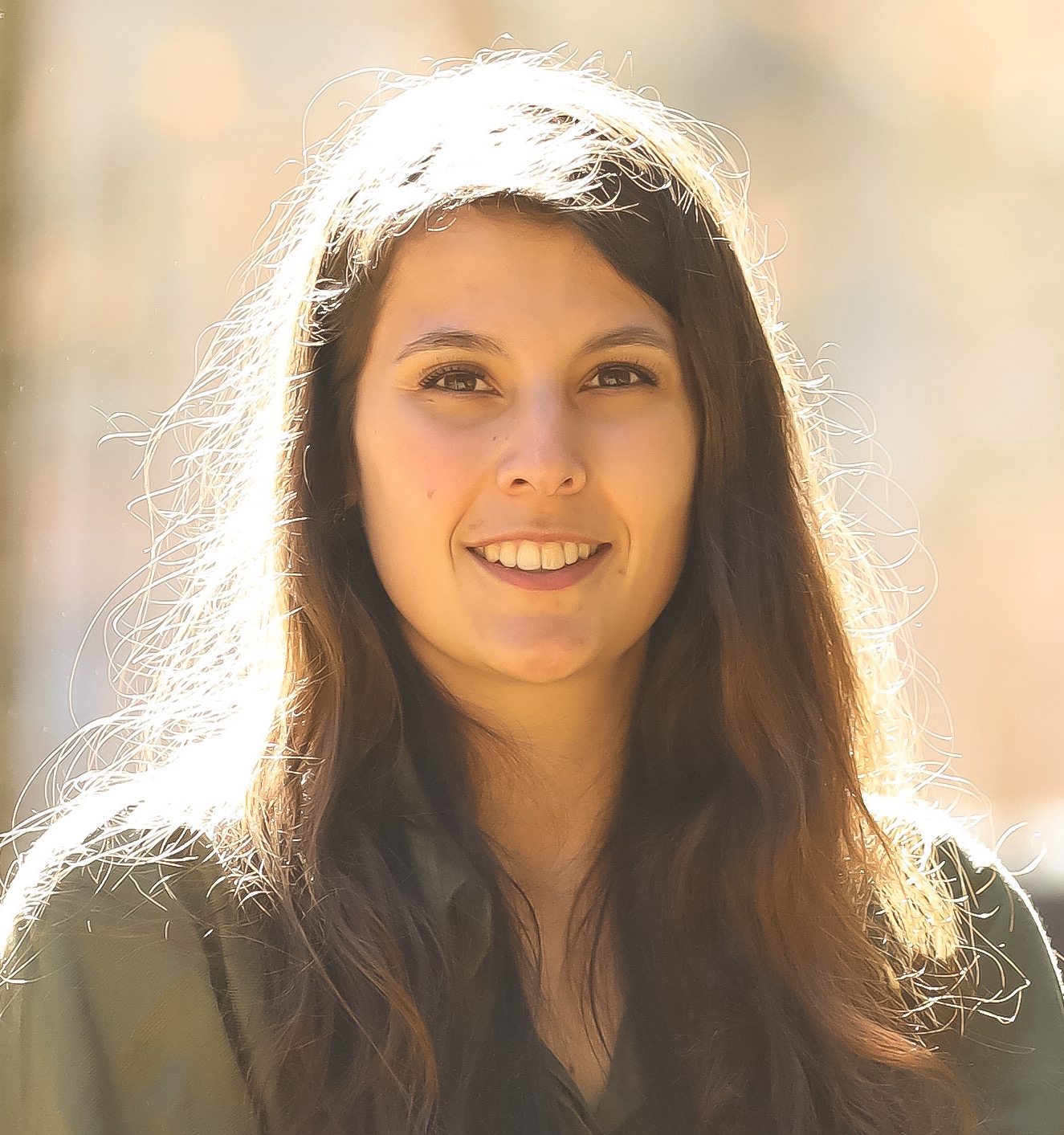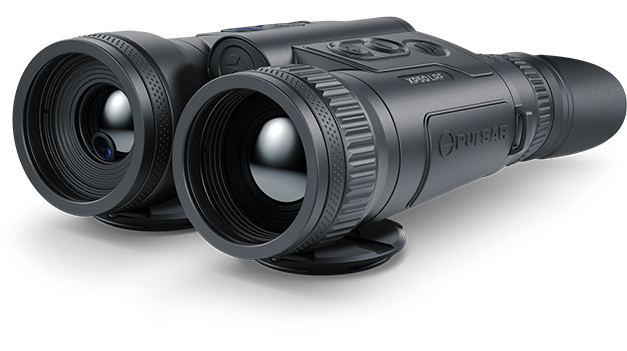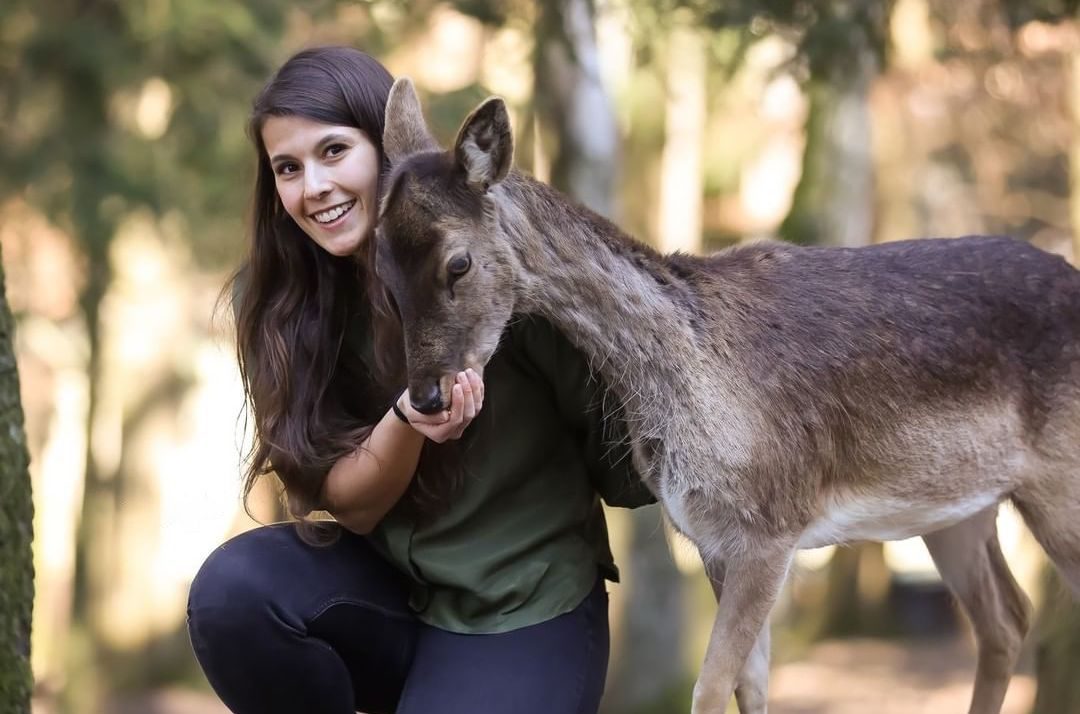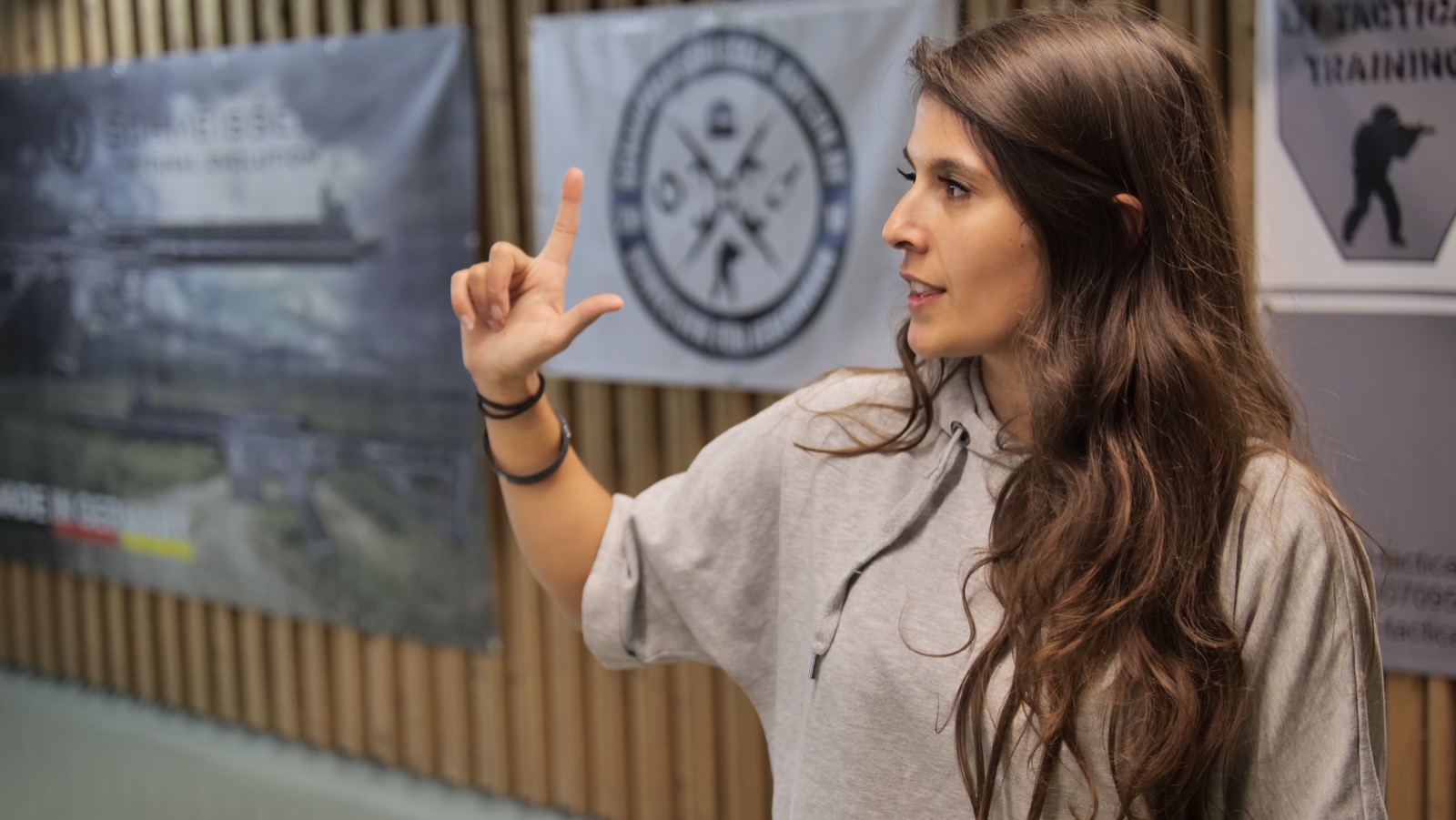
Claudia Breit, a huntress and psychologist from Germany, is also one of the newest members of the Pulsar family. Specialising in mental training for shooters and hunters, Claudia has a highly wholesome approach to the hunting process. Naturally, we couldn’t pass up the opportunity to hear more about it, and today, we invite you to do so, too.
Before we get into the specifics, could you introduce yourself?
I am Claudia, 26, and I come from Germany near Munich. I was born and raised in a small town in Upper Franconia. After my school time, I started a career in the German armed forces. There, I learned and practised how to shoot. I also studied Psychology and have a Master’s in clinical psychology and psychotherapy. While studying, I also got my hunting license and started to combine hunting and psychology. We had no hunters in our family before me, but after I found my passion, my parents got their licences, too. Nowadays, I hunt in two big areas, mainly for wild boar, roe deer, and foxes. Right now, I am waiting for my puppy to arrive.
How did you decide to start hunting?
I started hunting because I love animals. I always had an inner fight between loving animals and shooting them. It took me some time to realise that these two things are deeply connected. That the impact of hunting is more than just killing. And so I started slow and reflective, always thinking about what my rifle and I were doing out in the fields. The first animal I shot was a young female roe deer, and I will always remember this feeling when I pulled the trigger. It was overwhelming, sad, but proud at the same time. Every time I think about this experience, I get a shiver.
You’ve mentioned that realizing that hunting isn’t just about killing an animal has fundamentally changed how you feel. Could you elaborate on what hunting means to you now?
People often view hunters, especially here in Germany, as murderers of innocent animals. However, this is not true. Hunting involves understanding the ecosystem and taking actions that contribute to the improvement of nature. As hunters, we also care for “our” animals and assist in the conservation of endangered species through predator control. Another important aspect is pest control.
What did it take for you to understand that?
The process involved examining the effects of hunting. Shooting and killing are actions that are easily comprehensible to our human brains. When a hunter shoots, it implies that they are going to kill. However, the impact goes beyond the death of an animal and encompasses other actions carried out by hunters. From a technical perspective, I learned to understand this aspect.
Initially, when I started attending hunting school, I believed that hunters only desired to shoot big game and collect trophies. This was a prejudice I had acquired during my childhood. From a technical standpoint, I gained an understanding of our ecosystem and the “truth” behind hunting – the positive aspects, I suppose. Mentally, this knowledge was a game-changer.
The act of shooting in the military was quite different; it was more stressful and did not require the same level of precision as hunting. Therefore, during my time in the military and while hunting, I began to connect my newfound knowledge about animals and the ecosystem with these “stressful” and technical aspects.
Now, when you look back at the time before you had your hunting licence, what impact do you think this has made on you?
Becoming a hunter has changed me in various ways. Nowadays, I often witness people obtaining their hunting licenses, and I observe transformations in their way of life. The same happened to me. I became more conscious of meat consumption, and my forest walks have taken on a different character. Seeing the world through the eyes of a hunter is a unique experience. I could never have imagined myself killing an animal, but after understanding the impact and gaining knowledge, I started to be able to envision it.
As hunters, we see and feel things in nature that people without this passion will never experience.
Claudia Breit
How did Pulsar find the way into your life?
I came across Pulsar at a trade show a few years ago. My hunting buddies always told me that Pulsar is really high-end stuff, so I tested some devices at the show, and it was a whole new experience for me. I had never seen such a clear image before, when using other thermal vision devices.
Now that you’ve had them for a while, which Pulsar device would you declare a favorite?
I have two favorites by now, but if I have to decide, I would say it’s the Pulsar Merger LRF XP50. Hunting and spotting with this device is a new experience. When I hunt in the daytime, I always use binoculars, and, for me, Merger is the equivalent of them in night hunting. We should never forget how important it is to see what animals are out there and to see if it’s a female, a male, or a mother. And the Merger does exactly this. I don’t have to get too close to disrupt the peace of the animals. This opportunity is awesome, for the hunter and for the game.
Pulsar Merger LRF XP50 is my favorite. Hunting and spotting with this device is a new experience. When I hunt in the daytime, I always use binoculars, and, for me, Merger is the equivalent of them in night hunting.

You provide psychological training for hunters and shooters. How did you come up with the idea?
This is quite a long story. As I mentioned, I started my shooting career in the military. There, you are learning what it is to shoot in stressful situations. But hunters just learn to shoot in a safe space at the range. And when I started to feel all these emotions that arose from hunting, I asked myself if I was the only one. And I mean, I cried after shooting a deer or boar, and my hunter buddies did not understand this. But there is nothing wrong with it, even if some people think about this in a bad way.
While hunting, we are forced to do the very best we can, and I can only shoot perfectly when I take my mental and psychical skills seriously and work on them. So, as hunters, it is our duty to train everything, not just the body and hard skills. And with my own experiences and my academic background, I developed this training just for hunters and shooters to help them connect body and mind.
Can you tell us about what you offer in a little more detail?
My offers start at the lowest level for people who aren’t sure if they want to become a hunter or not. In Germany, hunters are often described as murderers. And this prejudice unsettles people. And so they can talk to me and see if hunting is their passion. (Spoiler alert: it is, for the most part!)
In the next step, I guide people through the hunting test, so when they are struggling with test anxiety, I will be there to help them mentally.
My biggest offer is for young hunters who have issues with shooting an animal for the first time. At this point, they have never done this before, and they don’t know how it will happen. So, I train them to do their best shot and get their mind together and go one step out of their comfort zone.
Also, experienced hunters and shooters come to me to improve their skills on a really high level. So, I have something for every hunter, no matter at what point they stand in their hunting lives. I also help people who experienced traumatic stuff, for example, when they shot an animal in a cruel way by accident.
For me, it is important that people know what they are doing. As hunters, we decide to take animals’ lives. This is an extreme experience for the body and mind. And it is our duty to do this the best way we can. So in my eyes, every hunter needs to get on with mental training and the feelings behind just pulling the trigger.
What would you say are the three most important mental qualities or skills every hunter should have?
This is a hard question. But in the first place, hunters must have a strong will to improve themselves. Without practising, no matter if physical or mental training, hunters cannot perform and do their best shot. We cannot learn enough to understand nature and animals completely.
Then, they have to know their skills. Every human being can be trained to be a hunter, but the best ones know how far they can go. They know what they can do and what they cannot. They are thinking about their impact on nature and always use their opportunity to improve our ecosystem.
They are also humble and grateful. In my eyes, the worst hunter is a hunter who is doing this passion “Just for fun” and is going to be an emotionless killing machine. These people start to make mistakes, and they do not correct these mistakes; they treat them as if they were normal. Humble and grateful hunters always appreciate the privilege of harvesting game with their hands. This is so important.
Which of the qualities would you describe as perhaps too neglected and in need of more attention?
Of course, the mental side of hunting. I have many people saying about me that I am superfluous and that people that need my knowledge and help are weak. In fact, this is not true. Taking help is a strong characteristic. Knowing your feelings while hunting and turning them into skills for a better shooting result is game-changing. The impact of our thoughts is so strong – not just on our own mind and body but also on what we are doing. Shooting at an animal is an especially cognitively stressful situation. I can handle them way better when I understand my mind.
What’s your favorite thing about your job?
For me, I think it is living without an alarm clock (smiles). When I started to build my company and stand on my own feet, I told myself it was because I wanted to sleep as long as I wanted every day.
More seriously, in my job, it is the work with people thinking in the same direction as me. I love that my mission is becoming bigger and bigger. People start to think about their actions and impact, and they start to do the best they can, and this protects animals from suffering. And, of course, I love what I do because I love hunting and psychology. I am really grateful for everybody joining my way. The hunting world is returning to their feelings; they start to be more grateful and live their passion in the best way I can imagine.
And what’s your favorite thing about hunting?
I love stalk hunting in the woods. Listening to the birds, smelling the forest and the grass. Sun or moonlight on my skin and the understanding of nature. I can read the signs, feel the animals and know what their next steps will be. This knowledge is a true privilege. As hunters, we see and feel things in nature that people without this passion will never experience. Shooting itself, I like the least – for me, it is the experience that counts.
I always had an inner fight between loving animals and killing them. It took me some time to realise that these two things are deeply connected – hunting is more than just killing.
Claudia Breit
Before purchasing any night or thermal vision device, please make sure you adhere to the local legislation and only use it when it is allowed. Our ambassadors come from various countries and travel a lot, which allows them to test different devices. We do not encourage or support the illegal use of our devices in any events. If you wish to learn more about export and sales restriction policy, please visit the following link: Export and Sales Restriction Policy.


